Author: Livingston Library
A holiday greeting from the Robert R Livingston Masonic Library
On behalf of the Trustees and Staff of the Robert R Livingston Masonic Library, I extend warmest Holiday greetings to our Brothers, their families and to all of the Library’s many friends. We thank you all for your generosity, support, and goodwill this past year. Through your participation in the Library’s programs, it is our goal to share the Light of Masonic history, tradition and culture throughout this Grand Jurisdiction and throughout the world. We hope you’ll continue to frequent our reading rooms and website in the new year. As we speed through another Holiday Season, we hope that you and your families may enjoy in full the spiritual gifts of your Holiday traditions. Peace and joy to all!
Best fraternal regards,
R∴W∴ Steve King
President, Robert R Livingston Masonic Library Board of Trustees
Librarian Joseph Patzner featured in an article by The Gothamist
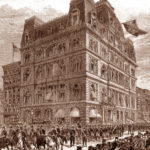
Don’t miss this fantastic piece in The Gothamist! Click here to see wonderful photographs of the Grand Lodge Masonic Hall on 23rd Street and a thoughtful article based on the interview with Mr. Patzner.
*Image: The Grand Lodge of New York, 1875, 23rd Street and 6th Avenue.
Sponsor For the Library Lecture Series
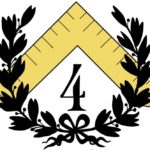
The Chancellor Robert R Livingston Masonic Library of the Grand Lodge of New York is pleased, proud and very happy to announce that the Free Monthly Lecture Series has found a Sponsor for the next seven Lectures.
We thank, so very much, The Square Club of the Fourth Masonic District of Manhattan, Inc. for their Sponsorship! We are deeply grateful for their support.
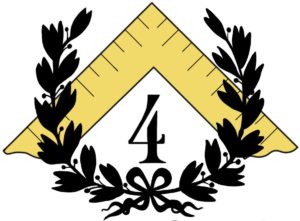
The website for The Square Club of the Fourth Masonic District of Manhattan, Inc. is https://www.4msquareclub.org/. Should there be any questions for the Square Club, please contact them at 4msquareclub@gmail.com.
As the Library is a not-for-profit, New York State Chartered Association Library, donations such as this and those that come to us through the Masonic Brotherhood Fund help the staff fulfill the mission of the Library.
The Mission of the Chancellor Robert R Livingston Masonic Library is to collect, preserve, interpret, and make available for education and research, to both members of the Fraternity and others, such materials as relate to the history, philosophy, culture, and organization of Freemasonry, in its social and historical contexts, with a special emphasis on Freemasonry in New York State.
Image Courtesy: The Square Club of the Fourth Masonic District of Manhattan, Inc.
Copyright 2014: The Square Club;
Copyright 2014: The Glorious Fourth
Archive Internship Experience
By Debra Grech
For the spring 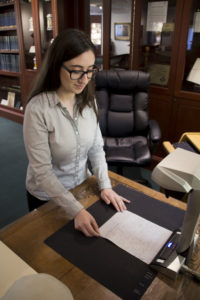 semester, I was given the opportunity to intern at the archives of the Chancellor Robert R. Livingston Masonic Library as part of my coursework towards a Masters in Library and Information Science, with certification in Archival and Cultural Heritage Preservation from Queens College. This was my first internship experience since entering this masters program and my time here has been invaluable.
semester, I was given the opportunity to intern at the archives of the Chancellor Robert R. Livingston Masonic Library as part of my coursework towards a Masters in Library and Information Science, with certification in Archival and Cultural Heritage Preservation from Queens College. This was my first internship experience since entering this masters program and my time here has been invaluable.
As an intern, I was given the chance to apply theoretical knowledge gained in the classroom to practical and hands-on experience in a professional setting. My tasks included rehousing and inventorying pre-1900s individual lodge papers from Series 2 that were originally housed in bound volumes and placing them into acid-free boxes and folders. The papers were placed in the folders based on their content and metadata was added in order for the papers to be easily accessed for future researchers. Previous inventories did not contain date range and lodge location categories, however, my supervisor and I decided that was important information that could be added to further increase accessibility. Additionally, I worked on a digitization project where I scanned previously filed and inventoried lodge papers from Series 2 in an effort to preserve the originals in digital form in case the physical copy gets damaged. These papers were created by numerous Freemason lodges in New York State and range from lodge creation materials such as petitions and warrants to elections of new officers.
I am very thankful for the opportunity given to me to intern at the Chancellor Robert R. Livingston Masonic Library. During my time at this institution, I learned about notions of privacy that are specific to this archive. My knowledge of Freemasonry has also expanded by working with various types of Masonic materials as well as a highly knowledgeable staff that was always there to answer any of my questions.
Archiving at the Library
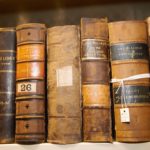
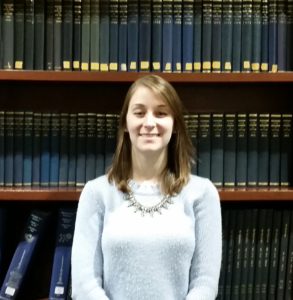
A Recap of “The First Jewish Grand Master: A Lecture with MW Daniel Semel”
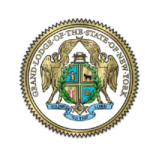
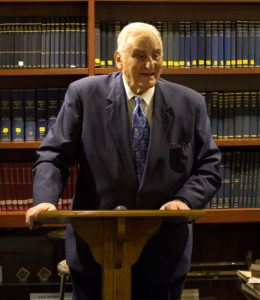
On November 30, 2017, the Chancellor Robert R Livingston Masonic Library was honored to have Most Worshipful Daniel Semel as our Speaker for the Month. His lecture, The First Jewish Grand Master, was extremely well received by our robust audience.
Tracing back into our Grand Lodge’s history, M∴W∴ Brother Semel highlighted several prominent New York Jews who were members of the Fraternity. He noted that M∴W∴ Harry Ostrov (1962-1963) was thought to be the earliest Jewish Grand Master in New York State – M∴W∴ Brother Ostrov is characterized as such in his 1995 obituary in our Grand Lodge Proceedings. Brother Semel challenged this idea, by focusing on M∴W∴ Isaac Phillips (1849-1852) and M∴W∴ Mordecai Myers (1853-1856). Both were New York Grand Lodge Grand Masters who were Jewish, but have been overlooked and, until recently, omitted from our list of Past Grand Masters. M∴W∴ Brother Semel delved into the colorful history of both men, and their public service in addition to their Masonic contributions.
M∴W∴ Semel’s hope is that members of the Fraternity will take this information, and research further into men like M∴W∴ Isaac Phillips and M∴W∴ Mordecai Myers.
Our Lecture Series typically run on the last Thursday of every month! Don’t forget to RSVP to our next lecture on December 14, with RW Pierre de Ravel d’Esclapon reprising his lecture, “Solomon’s Temple: Separating Fact from Fiction.”
Check Out New Books in the Library!
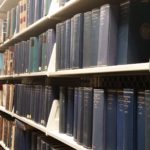
Next time you come to the Library, make sure to check out our 3 new books that were recently added to the collection!
Reclaiming the Soul of Freemasonry by Sovereign Grand Commander John Wm. McNaughton
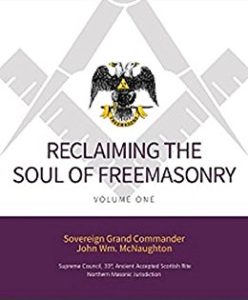 [Call Number: M11 M232]
[Call Number: M11 M232]
If you were ever interested in seeing contemporary Freemasonry being presented as infographics, this is the book for you! In our technology driven society, McNaughton has collected statistical analysis on survey data. He uses this data to support many valid points concerning how Freemasonry resonates with Millennials, and future endeavors of increasing membership.
A Place in the Lodge: Dr. Rob Morris, Freemasonry and the Order of the Eastern Star by Nancy Stearms Theiss, Phd
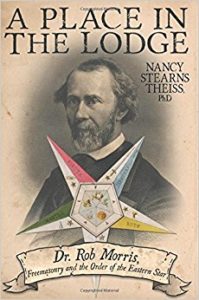 [Call Number: 921 T34]
[Call Number: 921 T34]
Theiss has written a fascinating new biography on Rob Morris, that stems from her transcription and research into Morris’ family letters that were previously unpublished. Known as the man who worked to establish the Order of the Eastern Order, these letters help to give the reader a better sense of the man himself.
Haunted Chambers: The Lives of Early Women Freemasons by Karen Kidd
[Call Number: M80 K54]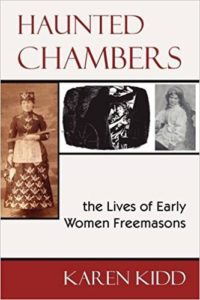
Tracing back to the medieval era, Kidd unveils the lives of women who were involved as both Operative and Speculative Freemasons. Through her research, she has been able to compile one of the most complete lists of early women Freemasons. By presenting Freemasonry from this particular perspective, Kidd highlights an often marginalized part of history.
Check Out Our Two New Exhibits on Music and Movies!

Come to the Chancellor Robert R Livingston Masonic Library to see 2 new exhibits, displaying material from the Library and Archives Department!
If you are interested in music, make sure to check out our new exhibit, Keys of the Craft: Masonic Musicians Through the Ages! We highlight a few major composers whose work was influenced by their Masonic background, including John Philip Sousa and Jean Sibelius. Ranging from tickets to vinyl records, this exhibit highlights the wide breadth of musical material that our collection holds!
Click here to see our playlist, with songs that helped inspire this exhibit!
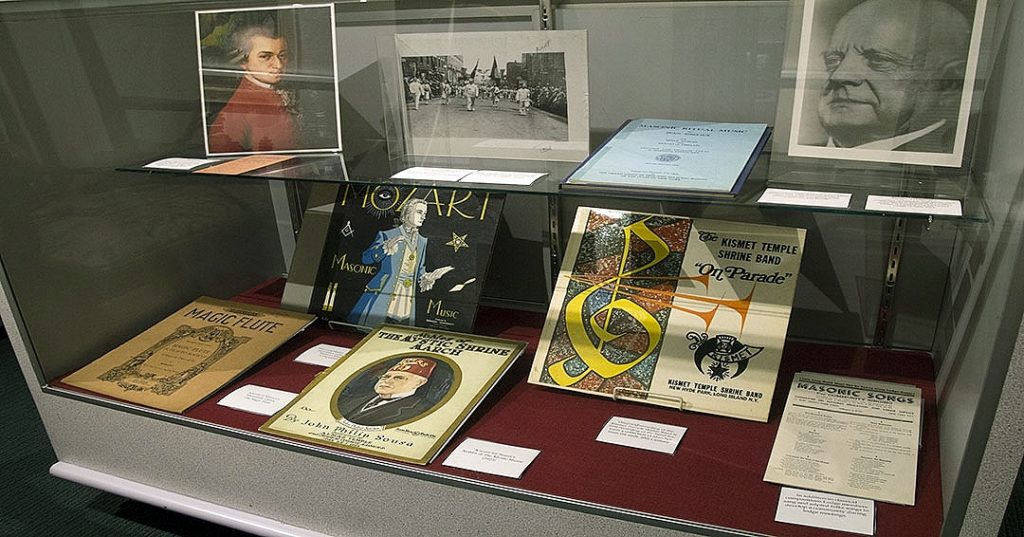
If you have seen the famous 1975 movie by John Huston, entitled The Man Who Would Be King, please stop by our other new exhibit, Rudyard Kipling: From Book To Screen. Having found original movie stills from the film, we have displayed these photographs, alongside both the source material and original screenplay! If you have time, make sure to stop by the Library’s front desk to ask to see our other stills from this movie that did not make their way into the exhibition case.
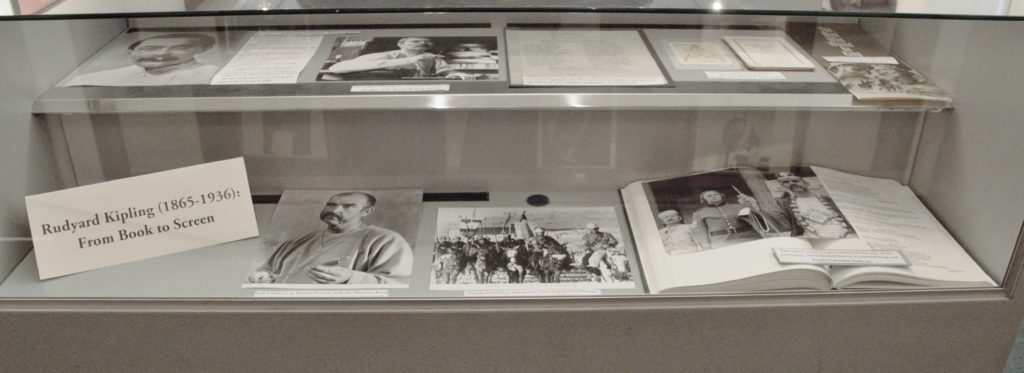
We look forward to seeing you, at the Library!
Assessing Materials Prior to Digitization

By Joseph Patzner
As there is increasing motivation to digitize records to expand accessibility, evaluating the breadth and condition of the materials selected for digitization is required. Additionally, making note of any idiosyncrasies, like photos glued onto a sheet of paper, loose pages within a bound book, or a tight binding, can help aid in understanding how materials will be processed.
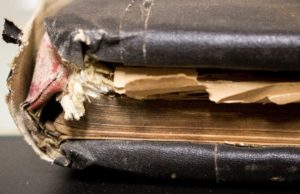
When assessing the condition of materials selected for scanning, each item is given an individual entry, where I take notes about the type of material (bound, loose material) and damage. During my most recent project, I found that materials from the 19th century tend to have spines and bindings that are in poor condition, primarily due to age, while more modern material tends to consist of loose material in binders. If I find any damage, I photograph the damage to assure the Lodges that the material was not damaged while on loan to be digitized. When looking at the types of material, if there are loose news clippings or photographs, I’ll note that these materials need to be rehoused in order to ensure the longevity of preservation.
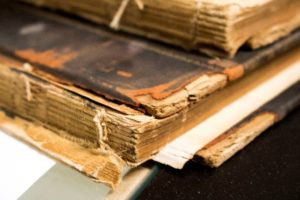
What to look for when preparing to digitize material:
- Loose or Missing Boards
- Loose Binding
- Torn or Missing Pages
- Loose Papers inserted into a Bound Book
- News Clippings
- Loose Photographs
If you would like individual materials or materials from your lodge digitized, contact our Digital Technician at Digital@nymasoniclibrary.org .
